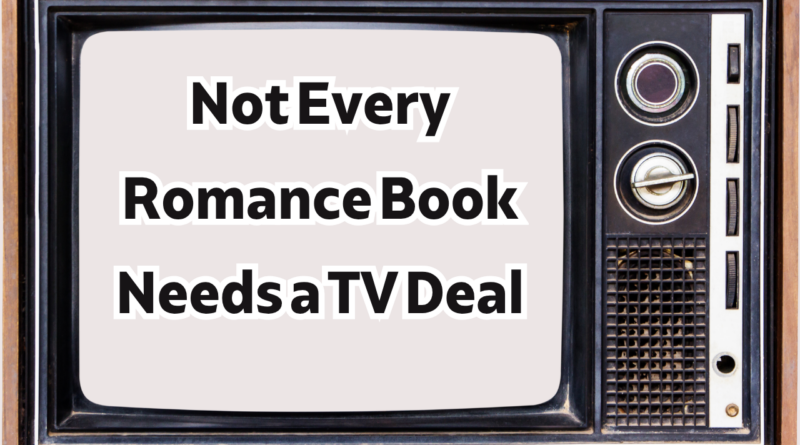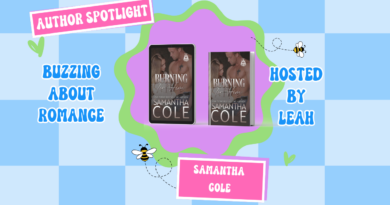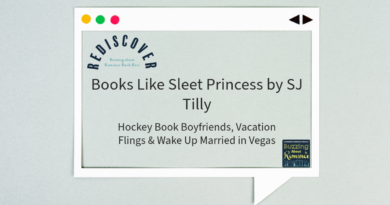Not Every Romance Book Needs a TV Deal: The Case for Keeping the Magic on the Page
The Book Was Better (And Hollywood Can’t Convince Me Otherwise)
Let’s get into it — because this has been simmering for months and I’m finally saying it out loud:
Not every romance novel needs to be turned into a TV show or movie.
I know, I know.
Adaptations sound glamorous.
Headlines get clicks.
Announcements get cheers.
A studio option feels like the golden ticket — not just for the author, but for the genre.
But we’re now at a point where 3–5 new romance adaptation deals are being announced every month, and the sparkle is starting to dull. What was once special has become… expected. Routine. Background noise.
And here’s the truth that rarely makes it into the hype posts:
An option is not a guarantee.
Not even close.
Most “adaptations” never make it past the development stage. They get quietly shelved, reworked to death, recast, repackaged, paused, and eventually… forgotten.
Let’s Talk About Those Adaptations
Remember when we all thought we were about to get:
- A Court of Thorns and Roses as a Hulu series?
- From Blood and Ash announced for adaptation before the tattoo ink on the fan art dried?
Yeah… where are those now?
Cancelled- in the graveyard behind the old studio lot.
Because studios may option stories, but:
- Budgets shift.
- Execs move jobs.
- Writers’ rooms fight over tone.
- Producers get cold feet.
- The cultural moment changes.
- And sometimes they realize belatedly:
adapting a romance with 70% internal monologue is not as easy as it looked on paper.
This isn’t shade. This is the industry.
But Let’s Zoom Out — The Bridgerton Effect (That… Wasn’t)
When Bridgerton hit?
We all thought we were entering the Great Regency Renaissance.
The logic was so simple it felt inevitable:
One massively successful historical romance adaptation = publishers buying more historical romance.
Instead… the opposite happened.
Historical romance is, right now, one of the most neglected and shrinking categories in traditional publishing.
- Editors aren’t buying it in the same volume.
- Shelf space is shrinking.
- Sales are consolidating around ~five legacy names.
- Most breakout “historical romance” discussions online now are actually about romantasy in ballgowns.
And the authors who built entire careers writing historically grounded, witty, emotionally resonant romance?
They’re pivoting.
- Into women’s fiction.
- Into contemporary upmarket.
- Into romantasy and gothic romance.
- Or out of publishing altogether.
Because the market isn’t supporting new historical romance voices.
Even when Bridgerton proved there is a massive audience… for historical romance on screen.
Which is not the same as on shelves.
Visual spectacle? Gorgeous.
Ballrooms, orchestral covers of Taylor Swift, and a duke who licks spoons? People showed up for that.
But the historical romance reading audience did not grow.
Publishers did not reinvest in the category.
And the books, slowly and quietly, have been disappearing.
So What’s Happening?
Romance on screen works best when it understands what romance on the page does.
Internality. Tension. Emotional transformation. Feelings so intense they shift the tectonic plates of your soul.
But screen adaptations often flatten that into:
- Banter
- A few longing looks
- A sexy scene shot in blue lighting for no reason
- And a soundtrack that says “feel something now!!”
They’re capturing the plot of romance, not the heart of it.
Which is why some of us are tired.
Adaptation culture is starting to feel less like celebration and more like extraction.
“If it’s popular, option it.”
“If it trends on TikTok, buy the rights.”
“If it has a fanbase, it must translate to screen.”
Except… it doesn’t.
And sometimes —
it shouldn’t.
What I Want Instead
- Adapt fewer romance books.
- Adapt them better.
- Put romance writers in the writers’ room.
- Protect emotional nuance as fiercely as we protect cover reveals.
- Make adaptations intentional again — not just inevitable.
I want adaptations to feel like events, not announcements on a PR calendar.
And mostly?
I want us to be allowed to say:
“The book was better.
And it had to be.
That was the magic.”
I’ll Leave You With This:
Some love stories are designed to live:
- in your chest,
- in your blood,
- in that soft buzzing place between your ears when you finally close the book and exhale.
A screen can’t always give you that.
And it doesn’t have to.



